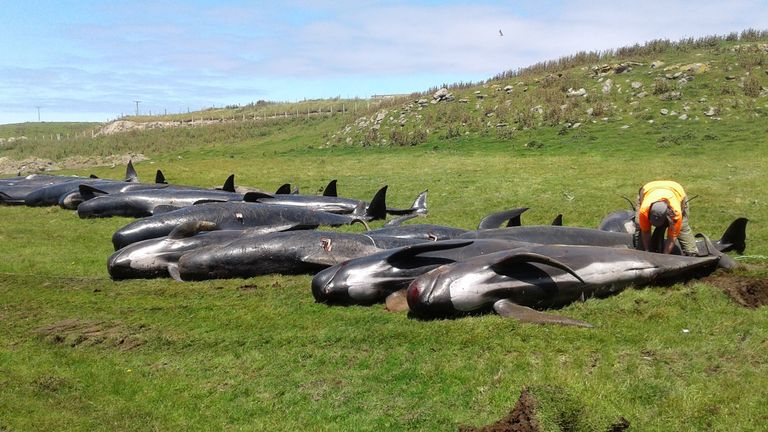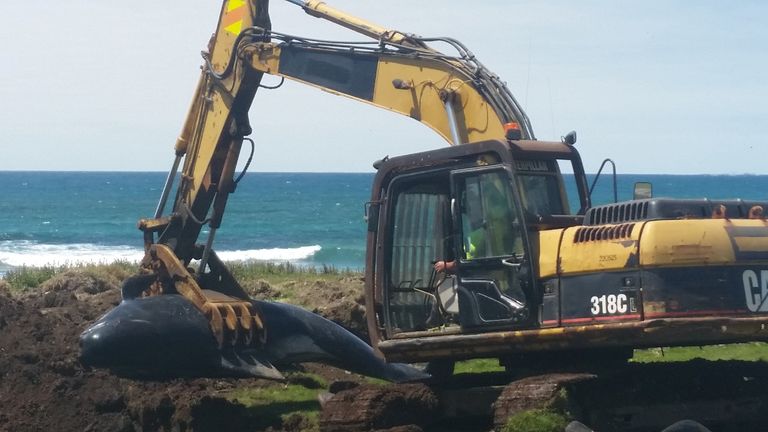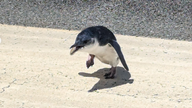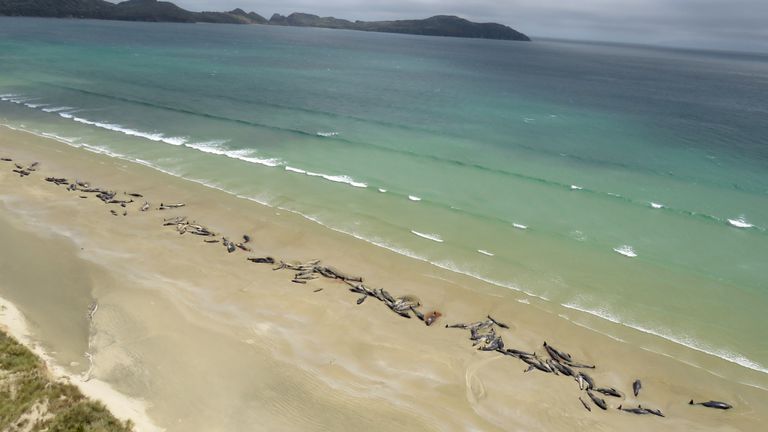New Zealand: 51 whales die in second mass stranding in days
In the latest incident, up to 90 of the mammals beached themselves at Hanson Bay on the remote Chatham Islands.
Friday 30 November 2018 12:28, UK
Less than a week after 145 pilot whales died in a mass stranding in New Zealand, another 51 have lost their lives in similar but seemingly unrelated circumstances.
In the latest incident, up to 90 of the mammals beached themselves at Hanson Bay on the remote Chatham Islands, 500 miles east of the mainland.
When conservationists arrived, they found up to 40 had refloated on their own but another 50 died on the beach.
One beached whale was still alive but experts decided to euthanise the creature due to its poor condition.
Last weekend, a hiker found 145 pilot whales in two pods just over a mile apart on Stewart Island, a small island to the south of the country's South Island.
They had been half-buried in the sand and around half of them were already dead.
The rest were in very bad health and were euthanised due to the lack of potential rescuers and the difficulty they would have faced in reaching the location.
On Sunday, 10 pygmy killer whales were found stranded at Ninety Mile Beach on the North Island.
Despite 200 staff and volunteers managing to refloat eight, all but one ended up stranding themselves again by Wednesday. Those whales were also euthanised.
Dr Dave Lundquist, an expert on marine species, said there was no evidence to suggest the strandings were linked.
He said: "You're talking about strandings across the entire breadth of New Zealand in a very short period of time, which naturally does cause everyone to reflect on whether those might have something to do with one another."
Dr Lundquist said while scientists do not typically know why individual whale strandings occur, they believe there are probably a range of reasons.
He said they could be caused by whales navigating incorrectly, trying to escape from predators, or some of them suffering injuries or illness.
He said there could also be man-made factors like underwater noise.
"In many of those cases, it's probably a combination of those factors," he said.
Whale strandings are most common in New Zealand during the southern hemisphere spring and summer.






